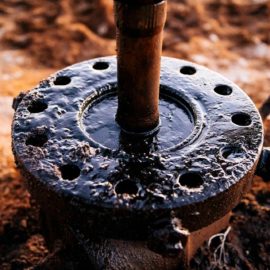
Is Louisiana the canary for energy? There is a battle going on now between fossil fuel and renewables.
Here in Louisiana, we find ourselves in the middle of a global conversation about decarbonizing the economy to combat the destructive impacts of climate change. This is undoubtedly a difficult conversation to have, because of our state’s long relationship with carbon-intense industries. But if we choose to ignore the changes going on all around us, we will fall behind environmentally and economically.
The Advocate
Louisiana needs to took to the future. While we have had a long relationship with oil, fossil fuel employment has been declining while wind and solar energy is both more efficient and cheaper. Additionally this energy form has had greater employment.
In response to these trends, Gov. John Bel Edwards has established the state’s first Climate Initiatives Task Force, acknowledging the threats and opportunities for the state and charging stakeholders with beginning the planning process for Louisiana’s climate action. “In many ways, Louisiana is the poster child for climate risk,” the governor said. “We are the canary in the coal mine. Beginning today, we want to be the gold standard for climate solutions.” There are plentiful opportunities to diversify our economy while increasing sustainability. For example, our history with maritime manufacturing has produced a wealth of transferable skills of enormous value — did you know that the only offshore wind farm in the U.S. is in Rhode Island and was built by workers in Louisiana? Or that Galliano-based shipbuilder Edison Chouest has signed an agreement to design, build and operate a $280 million, 260-foot vessel to service wind farms off the New England coast?
We need to harness the wind; clean up the residue of oil such as canals and dis-used rigs; develop ways to sequester carbon; and develop solar farms. We need to think of our children and grandchildren and not be wed to tradition.
Failure to adapt to the changing world around us will not only cost us economically but likely also spell devastation for the most vulnerable Louisiana communities — the very places that keep our culture alive and make Louisiana a global destination. Business-as-usual will continue to produce communities traumatized by climate disasters that include flooding, land loss exacerbated by sea-level rise, and economic disinvestment resulting from reduced productivity. These effects disproportionately fall on the poorest parishes, making the urgency of his transition an economic and an equity issue.
We need to focus not on jobs but sustainable jobs. Don’t make income disparity worse but close the disparity gap. Stop polluting our environment and instead clean it up. Our families need us to think of them as we promote economic vitality.
It’s time to focus our investments on clean industries, instead of doubling down on declining markets that leave us more vulnerable to climate disasters. We have more to gain than we have to lose by joining the global energy transition.
Can we do this?



